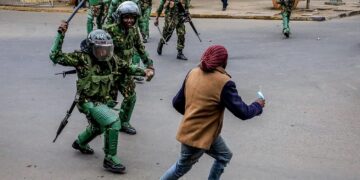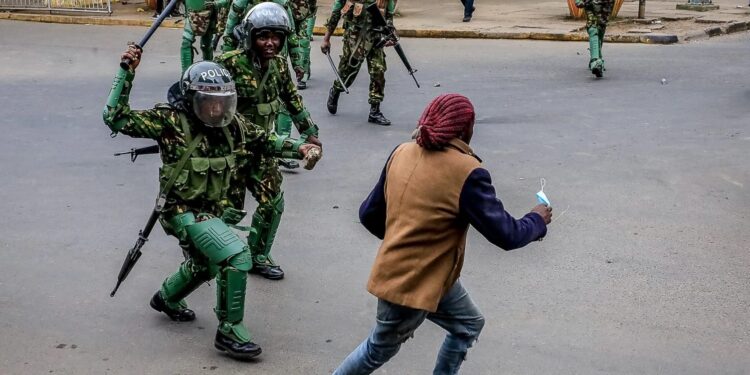By John Ikani
A Kenyan court has temporarily blocked a police order banning protests in the capital, Nairobi, upholding the right to peaceful assembly. The police cited safety concerns stemming from “leaderless” demonstrations and potential criminal infiltration.
For the past month, Kenya has witnessed anti-government protests sparked by unpopular tax hikes. Though the government scrapped the tax bill, demonstrations have continued, demanding President William Ruto’s resignation and addressing broader issues of corruption and police brutality.
Organizers planned further protests for Thursday, intending to gather at Uhuru Park and march towards State House. However, the call gained limited traction, with some leading activists distancing themselves from it.
Fearing violence, police declared a ban on demonstrations in Nairobi’s central business district. This decision faced immediate online backlash, with critics arguing it violated citizens’ right to protest. A human rights organization promptly filed a lawsuit, leading the High Court to suspend the ban pending a full hearing.
Despite the fizzled protests, a heavy police presence remained in Nairobi, reflecting the initial anticipation. Businesses, cautious of potential unrest, delayed opening until the situation became clearer.
Police cited “credible intelligence” of criminal groups aiming to exploit the protests. They also expressed concerns about the lack of designated leadership, making it difficult to enforce safety measures during previous demonstrations.
President Ruto has made concessions by scrapping the tax bill and dismissing his cabinet. However, protesters remain unsatisfied. They demand stronger action against corruption, accountability for police brutality that claimed dozens of lives during the rallies, and broader good governance reforms.
This incident highlights the ongoing tension between the right to protest and security concerns in Kenya. The court’s decision emphasizes the importance of upholding democratic rights even amidst unrest.




































